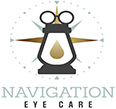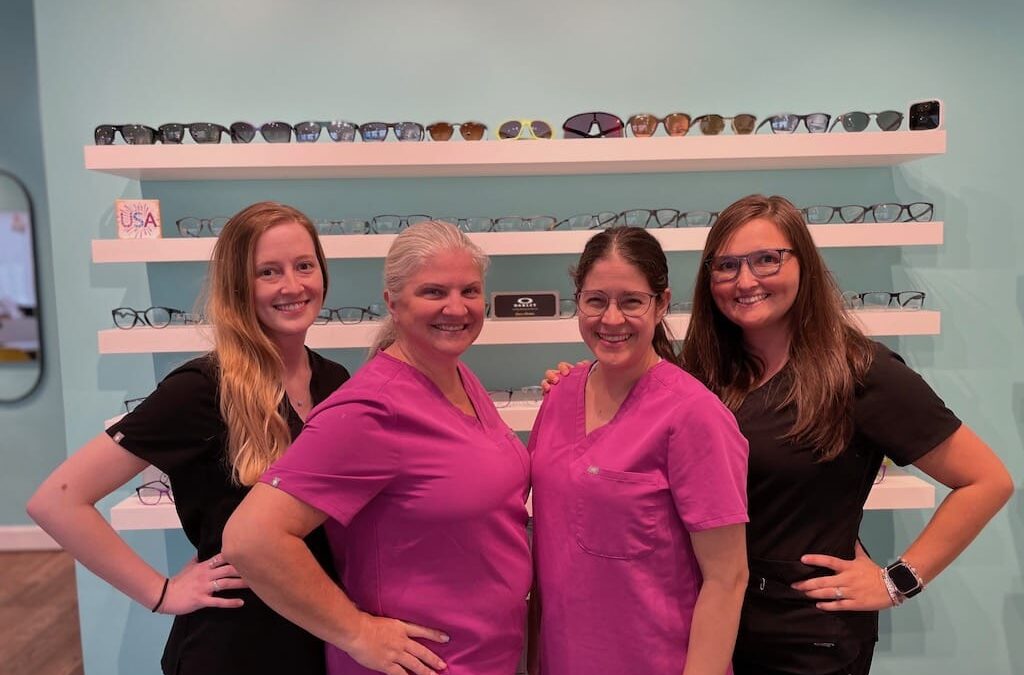Eyes on the Screen: Understanding the Impact of Digital Devices on Children’s Eyes
In today’s digital age, children are growing up surrounded by screens. From smartphones to tablets, computers to televisions, screens have become an integral part of their daily lives. While this technology offers numerous benefits, it also raises concerns about the impact of excessive screen time on children’s eye health. In this informative blog post, we’ll explore the dynamics of this challenge and offer insights into how Optometrist Chesapeake VA from Navigation Eye Care, can help ensure your child’s eyes remain healthy.
The Importance of Children’s Eye Health
Children’s Eyes: Precious and Vulnerable
Children’s eyes are still developing, making them more susceptible to the effects of digital devices and screens. The cumulative exposure to screens, especially without appropriate precautions, can lead to a range of eye-related issues.
Why Choose Navigation Eye Care?
When it comes to safeguarding your child’s vision, choosing the right pediatric eye care provider is vital. Optometrist Chesapeake VA and her dedicated team at Navigation Eye Care, specialize in pediatric eye care and are well-equipped to address any specific concerns you may have of your child along with checking a number of common eye related issues seen in children.
Effects of Excessive Screen Time
- Digital Eye Strain: Spending hours in front of screens can lead to digital eye strain, characterized by symptoms like eye fatigue, headaches, and blurry vision.
- Reduced Outdoor Play: Excessive screen time often replaces outdoor play, reducing the opportunities for natural sunlight exposure, which is essential for eye health.
- Sleep Disruption: The blue light emitted by screens can disrupt sleep patterns, affecting the overall health and well-being of children.
Tips for Finding Balance
- Set Screen Time Limits: Establish clear guidelines for screen time and ensure your child takes regular breaks to rest their eyes.
- Encourage Outdoor Play: Make outdoor play a priority. Engaging in physical activities outdoors not only benefits the eyes but also promotes overall well-being.
- Use Blue Light Filters: Consider using blue light filters on screens and encourage your child to wear blue light-blocking glasses when using digital devices.
of Navigation Eye Care
- Expert Pediatric Eye Care: Navigation Eye Care pediatric eye doctor offers specialized pediatric eye care services to address your child’s unique needs. Optometrist Chesapeake VA and her team have extensive experience in working with children, ensuring a fun and stress-free experience.
- Kid-Friendly Environment: Navigation Eye Care is designed to be kid-friendly, creating a welcoming and comforting atmosphere that makes young patients feel at ease during their visits. While also making parents feel comfortable.
- Educational Resources: Navigation Eye Care provides parents with educational resources to promote a better understanding of pediatric eye health. Knowledge is power when it comes to safeguarding your child’s vision.
As parents, we must prioritize our children’s eye health by staying informed and proactive. By understanding the importance of children’s eye health, recognizing potential issues, and seeking assistance from Optometrist Chesapeake VA at Navigation Eye Care, you can ensure that your child’s vision remains clear and their visual development progresses smoothly. Remember, healthy eyes are essential for a bright and promising future. So, let’s strike the right balance between screen time and outdoor play to protect the precious gift of sight for our children.
Navigating Nearsightedness in Children: Causes, Signs, and Management
Children are naturally curious and eager to explore the world around them. However, when their vision is compromised by nearsightedness, it can affect their ability to learn and experience life to the fullest. In this informative blog post, we’ll delve into the causes, signs, and management of nearsightedness in children. And if you’re in Chesapeake, VA, Optometrist Chesapeake VA, particularly Navigation Eye Care, is here to provide expert guidance on this journey.
Understanding Nearsightedness in Children
Nearsightedness: A Common Vision Issue
Nearsightedness, medically known as myopia, is a refractive error where distant objects appear blurry while close-up objects can be seen clearly. It often develops during childhood and can progress over time.
Why Choose Navigation Eye Care’s Pediatric Eye Doctor?
When it comes to your child’s vision, making the right choice in an eyecare provider can be a game-changer. Optometrist Chesapeake VA at Navigation Eye Care, is a dedicated pediatric eye doctor who not only specializes in children’s eye care but also knows how to make it an enjoyable experience for the whole family. Our team is here to ensure that your child’s nearsightedness is not just addressed but approached with care and a touch of fun!
Causes of Nearsightedness
- Genetics: A family history of myopia significantly increases a child’s risk of developing nearsightedness.
- Environmental Factors: Spending excessive time indoors and engaging in activities like prolonged screen time can contribute to the development and progression of myopia.
- Educational Pressure: Extensive reading and close-up work in a high-pressure academic environment may also play a role.
Signs of Nearsightedness in Children
- Blurry Distance Vision: Children with myopia often struggle to see distant objects clearly, such as the blackboard at school or road signs.
- Squinting: Squinting is a common coping mechanism to improve focus on distant objects.
- Headaches or Eye Strain: Nearsighted children may experience frequent headaches or eye strain, especially after reading or screen time.
Management Strategies
- Comprehensive Eye Exam: Schedule regular eye exams for your child with a trusted Optometrist Chesapeake VA from Navigation Eye Care. Early detection and intervention are crucial.
- Prescription Glasses: If your child is diagnosed with myopia, prescription glasses can correct their vision and help them see clearly.
- Orthokeratology (Ortho-K): In some cases, Ortho-K lenses may be recommended. These special contact lenses are worn at night to reshape the cornea, temporarily reducing myopia during the day.
Tips for Myopia Control
- Outdoor Time: Encourage your child to spend more time outdoors, as studies suggest that outdoor activities may help slow the progression of myopia.
- Screen Time Management: Implement screen time limits and the 20-20-20 rule (take a 20-second break every 20 minutes of screen time and look at something 20 feet away).
- Regular Eye Checkups: Schedule frequent eye checkups to monitor the progression of myopia and adjust treatments accordingly.
Nearsightedness is a common vision issue among children, but with the right guidance and management, it can be effectively addressed. By understanding the causes, recognizing the signs, and seeking assistance from Optometrist Chesapeake VA and her team at Navigation Eye Care, you can ensure that your child’s myopia is managed appropriately.
Remember, a child’s vision is precious, and early intervention is key to providing them with clear and comfortable vision for a bright future. So, let’s navigate nearsightedness together and empower our children to explore the world with confidence and clarity.

